March 21st 1921.
My dear Mr. Francis,
Many thanks for your very interesting letter of January 22nd. Its analysis of the opinions people in the States are holding and of the public sentiment has greatly interested me confirming as it does that our trust in the good sense underlying your people's attitude towards European and world questions promises to be wholly justified. I am glad to follow your suggestion to give you my impressions of important developments as they seem from time to time to shape themselves over here.
Our citizenship has in recent months more than at any time since 1914 been united in its determination to exhaust every possibility of self-help left to our country even under the threatening conditions of the Versailles treaty. The country has been trying to develop not only its economic life but also its entire educational and similar activities and facilities in the support of its new forms of civic freedom, thereby hoping to carry on with renewed energy the finest traditions of Goethe, Fichte, Jahn and their times. People's Universities, Schools for the Gifted, Debating Societies etc. signified by their rapidly increasing number the tendency to free our national life from its predominatingly economic [color]. The "victory without peace" now definitely "sanctioned" at London is now ever forcing a change. The attitude of our former and unfortunately present enemies has eliminated every other consideration but the one of our economic survival. [page 2]
The elimination of German trade in Entente countries has been demanded from the beginning by the "bitter enders". The trade war now threatens to be carried even beyond the [program] outlined in 1915 and 1916 by the "bitter enders" as it already seems to have brought with it an attempt to boycott German trade with non-Entente countries. The feeling is spreading that England has been and still is the driving power behind practically every economic measure launched against us, the unfortunate but understandable ire of the French being merely used as a convenient cover to prevent premature discovery of the real plans. They appear to many of us to be the following -- and their very scope would justify their discussion as they are bound if put into practice to affect directly, not only indirectly, the economic structure of the rest of the world.
During the greater part of the 19th century England as the foremost manufacturing country of the world was forced to draw on all the available sources for its raw materials and has been as of course the champion of Free Trade. Economic and political reasons have made for a decided change in this attitude especially since the beginning of the present century. Chamberlain's protective campaign and Balfour's finely balanced speeches about insular free trade clearly established the trend some fifteen years ago. Economically the manufacturers of England had to be protected against the growing competition of America and Germany, while at the same time the supply of raw materials had to be safeguarded. Politically this pressing problem had to be solved with a view of identifying more closely the colonies with the motherland, thus furthering the British empire idea by taking care of the needs of the motherland. [page 3]
With due allowances to the enormous difficulties involved in such a change of trade methods unstinting admiration must be given to the group of English statesmen now dominant who have never lost sight of the goal. Canada's and India's British Empire preferential tariffs before the war were only a small beginning. The political elimination by war of the most immediate competitor, Germany, also has only been a step, but the peacetime "sanctions" of London have so far been the boldest advance towards the goal as the goal naturally implies a check not only on German trade but on every non-British trade. Operations are now under consideration and in execution involving [up-to-date] methods applicable in times of peace for trade protection and trade interference. The control of trade through issue of licenses or through evidence about the source of origin is far more effective than one through tariff laws as the first one is far more difficult to overcome or to counteract. Issue of licenses permits delay when non-British trade is involved, evidence about source of origin permits temporary detention on any mere ground of suspicion in practically every case where European countries are concerned. The natural advantages already existing for the British colonies in trading with the motherland owing to the higher purchasing value of its money as compared with that of most countries on the continent are thereby bound to be accentuated. It will thus be made much easier to persuade the colonies to allow the British Empire to be organized into a sort of Custom Union. A body economic would then be created which left to its own resources could in time fully absorb its own raw materials, the [autarkic] state par excellence. The industries, however, chiefly those of the British Isles, would probably have left after fully and [page 4] exclusively supplying the Empire demand in manufactured goods a real surplus such as the industries of the British Isles were only during the early decades of the 19th century able to distribute in a world at that time industrially not developed.
We in Germany shall in all likelihood have to trust more fully than ever to individual initiative to save us from the threatening destruction of our industries. Our answer to the "sanctions" will probably be the removal of every trade restriction, the establishment of free trade with the world as far as our country is concerned. We shall have to rely upon the political wisdom of the French that they will not permit the occupied and segregated Rhenish and other districts to be industrially paralyzed and thus to have their present sharp feeling toward the Entente turned definitely into hatred.
[Self-reliance] , that development of far going individual responsibility so familiar in your country is something our young people are striving far more than ever. This state of mind must be credited to the greater civic freedom the new constitution has granted us. The "Councils" are thus instituted in ever form of activity. They have also found their field at the universities. For instance, the membership in the "Deutsch Studentenschaft" (German student body) has become obligatory at all German universities, a small percentage of the [enrollment] fees being deducted by the authorities for every student and turned over to the "Council". The student then has a right to participate in the General Council of the students of the university and to cast his vote for the local student representatives (about one for every 500) who in turn elect first a local board and then through delegates a national executive board. These elections take [page 5] place yearly and bring to the front at present when about 130,000 students are voting a circle of some 200 of the most popular and energetic young men among the coming intellectual leaders of our country. These boards, the national in conjunction with the locals, have taken especially one step deserving to be commented upon. They have created a "Wirtschaftshilfe" (economic help) conducted by the students themselves which is qualified to assist the great number of those students who have not sufficient immediate means under the present difficult conditions to carry on their studies. This help takes the form of bringing such students into touch with opportunities of extra work and of giving them a chance of purchasing provisions, meals and necessaries of all kinds at the lowest possible prices. A form of self-help common in your colleges, "working your way through college", something everybody has to admire, is thus at last brought into our university life. The national "Wirtschaftshilfe" of the students has its seat at Dresden. Local organizations are in every one of the 23 German university towns.
With best Easter wishes and kindest regards I remain
very sincerely yours

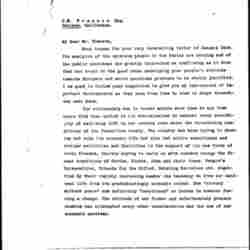
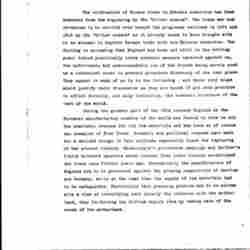

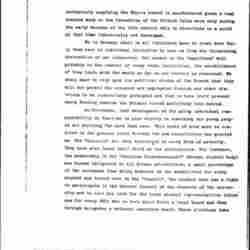
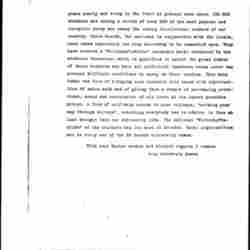


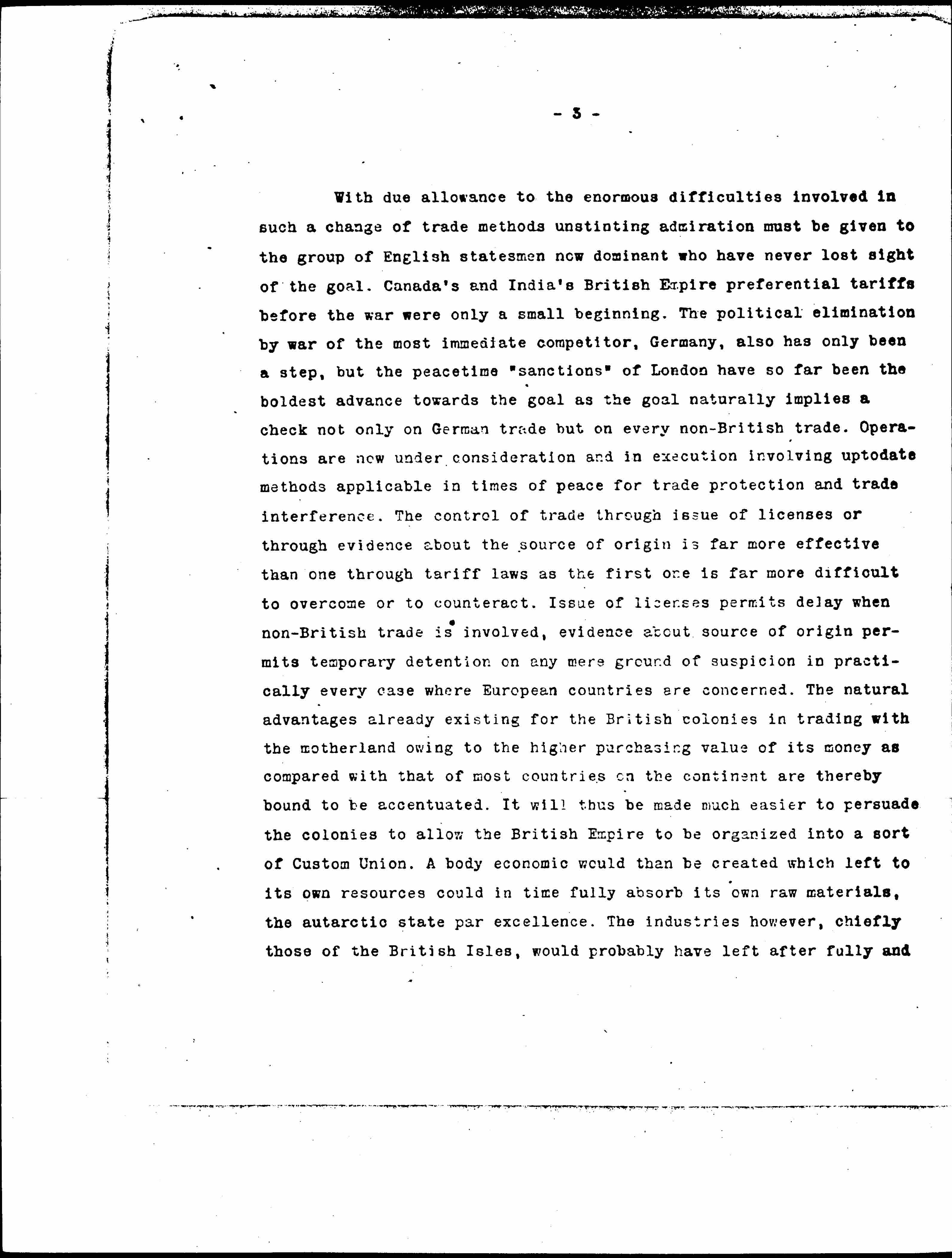










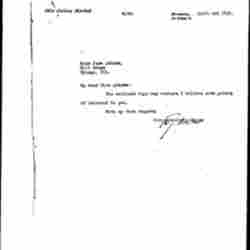
Comments